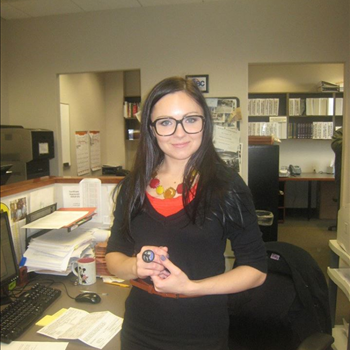Right Now
8 Tips for Choosing the Best Lawyer

The American legal system is complex and diverse. It is governed by both federal law and the laws of individual states. It's nearly impossible for a layperson to understand all the intricacies on their own. Therefore, choosing a lawyer is important when facing legal problems—be it immigration issues, family disputes, criminal cases, or business disputes.
However, finding a truly competent and reliable specialist is no easy task. There are a multitude of lawyers on the market, and not all of them are equally qualified or suitable for you. A mistake in your selection can be costly: from lost money to a lost case. To avoid problems, it's important to know what to look for when applying. In this article, we have gathered eight practical tips to help you find the best lawyer.
1. Determine the area of law in which you need help
The first and most important step is to determine what type of specialist you need. US law is divided into many areas, and lawyers typically specialize in specific areas.
Examples:
An immigration lawyer will assist you with visas, green cards, citizenship, and deportation cases
A family lawyer will handle divorce, alimony, and child custody cases
A criminal defense lawyer will defend you in criminal cases, from theft to serious crimes
A business lawyer will advise companies on contracts, tax issues, and corporate disputes
An employment lawyer will represent the interests of employees or employers in cases of dismissal, discrimination, or violations of working conditions
By consulting a generalist, you risk receiving only superficial advice. A highly specialized lawyer, on the other hand, will know all the details of your specific situation, including the latest legal changes and case law.
2. Check licenses and accreditation
In the US, every lawyer must be a member of their state's bar association. This ensures that they are authorized to provide legal services and adhere to professional standards.
Things to look for:
Is the lawyer a member of your state's bar association?
Have they been subject to disciplinary action or client complaints?
Does their license correspond to your chosen area of law?
Official bar association websites usually have sections where you can check a lawyer's status by name or license number. This is an easy and reliable way to ensure you're dealing with a reputable lawyer and not a fraud.
3. Professional experience and reputation
Experience in a particular area of law is a crucial factor. A lawyer may have been in the field for 20 years, but if they've never handled cases similar to yours, their knowledge may be of little use.
What to look for:
Number of years of professional experience in the desired area of law
Success stories – cases won, favorable court decisions, successful transactions
Client reviews – You can find them on Avvo, Martindale-Hubbell, Google Reviews, and Yelp
Attorney rating – Some platforms rate attorneys based on their experience, reviews, and reputation
The best attorney will not hide their successes. They can also provide examples of similar cases in which they achieved a positive outcome.
4. Pay attention to their communication style
Legal matters are often associated with stress and uncertainty. It is essential that your attorney not only works professionally but can also explain complex issues simply and build a trusting relationship.
Criteria for communicating with an attorney:
Availability – Do they answer calls and emails within a reasonable time?
Openness – Are they willing to discuss potential risks and weaknesses in your case?
Understandability – Can they explain legal terms simply?
Respect – Does the lawyer treat you as a partner, not someone who "doesn't understand anything"?
Many underestimate this aspect, but communication style often determines how pleasant working with a lawyer will be throughout the entire process.
5. Compare prices
Legal advice in the US can be pretty expensive. A lawyer's price depends on many factors, including experience, the complexity of the case, the region, and even the specialist's reputation.
There are several different types of fees:
Hourly fee – the most common. On average, it ranges from $150 to $600 per hour, depending on the specialty and the city.
Fixed fee – usually in predictable cases, such as drafting a will or registering a company.
Contingency fee – the lawyer only receives payment if the case is won (often in personal injury claims).
It's important not only to clarify the price but also to request a written agreement that clearly describes what you are paying for. This way, you can avoid unexpected costs.
6. Personal impressions matter
Even the most experienced and best-paid lawyer may not be the right fit for you if you don't trust each other. Personal feelings during the initial consultation are often a good indicator of future collaboration.
Pay attention to the following points:
Do you feel comfortable in this person's presence?
Do they listen attentively, or do they interrupt?
Do they try to understand your interests and goals, not just the legal aspects?
Do they give you confidence in the outcome of the case?
Sometimes it's better to choose a lawyer who isn't the most expensive but is more personable than a specialist who handles the case formally.
7. Recommendations and professional networks
The personal experiences of others are a valuable source of information. Ask friends, colleagues, or acquaintances who have experienced similar situations whether they are satisfied with their lawyer.
Also useful:
Online platforms – Avvo, FindLaw, Justia
Professional associations – for example, the American Immigration Lawyers Association (AILA) for immigration cases
Social networks – you can check out a lawyer's background and professional contacts on LinkedIn
References are especially important if your case concerns a narrow area of expertise or requires a lawyer who practices in a specific region.
8. Pay attention to strategy and approach
A good lawyer is not just an executor of your instructions, but a strategist who can anticipate the consequences and offer various courses of action.
During your initial consultation, ask:
How do they assess your chances of success?
What strategies do they offer, and how do they differ?
What risks exist, and how can they be minimized?
How long will the process take?
If the lawyer promises a "guaranteed success," that's a red flag. The law is unpredictable, and no reputable specialist will offer a 100% guarantee. It's much more important that the lawyer is realistic and honestly warns of potential difficulties.
The bottom line
Choosing a lawyer is not just a formality, but a strategically important step that can impact the future of your life, your business, or your family. A mistake during this phase can be very costly. Therefore, proceed as responsibly as possible. With these tips, you'll find not just a lawyer, but a true ally who will protect your rights and interests in the complex American legal system.
More Posts



















Map
Amelia Grant
Get DirectionsAmelia Grant
-
31-57 37th St
Long Island City, New York 11103
United States - 6462709836
Report This Post
Please complete the following requested information to flag this post and report abuse, or offensive content. Your report will be reviewed within 24 hours. We will take appropriate action as described in Findit terms of use.


